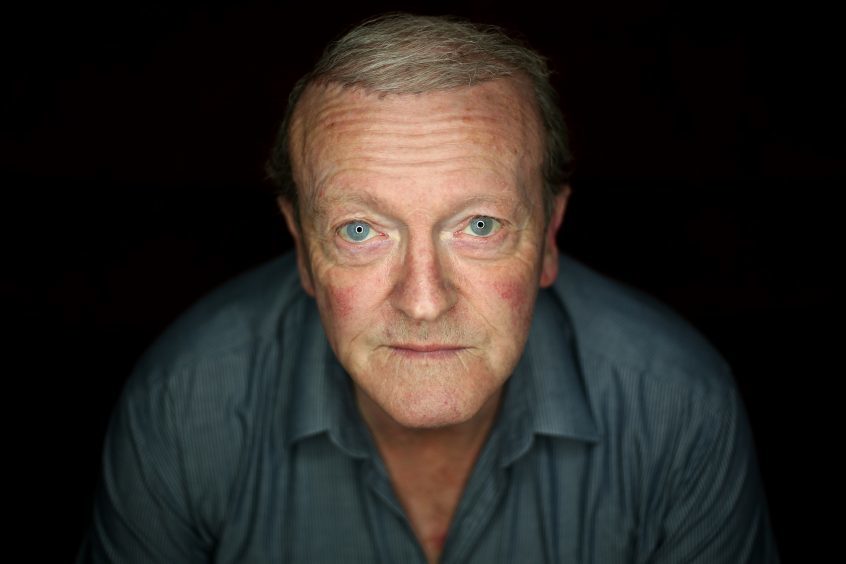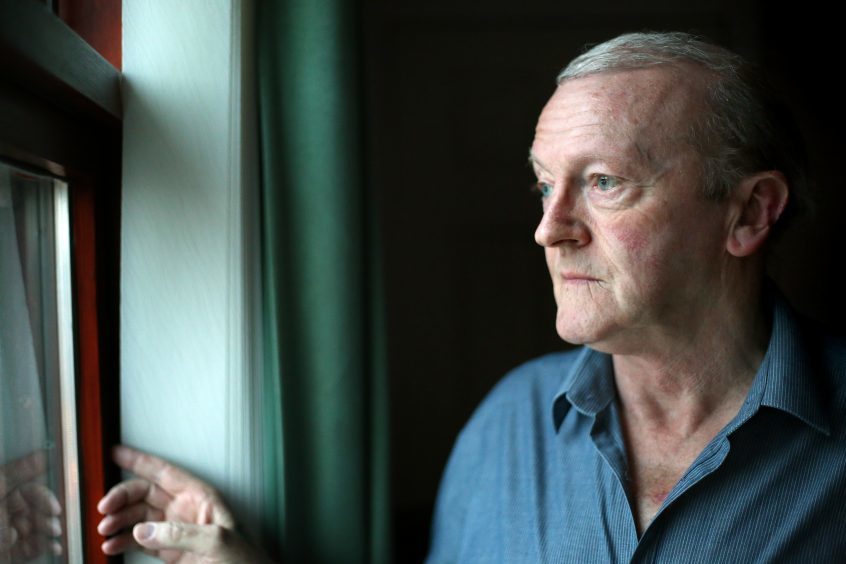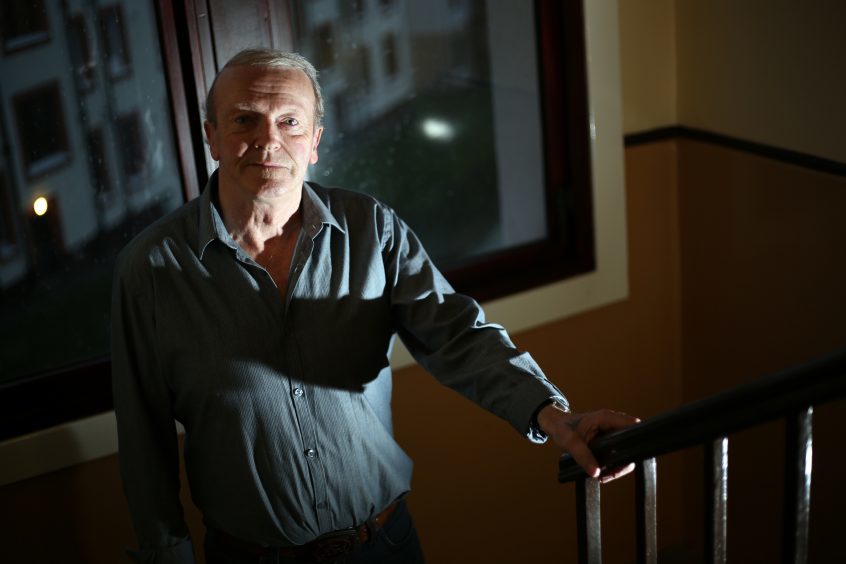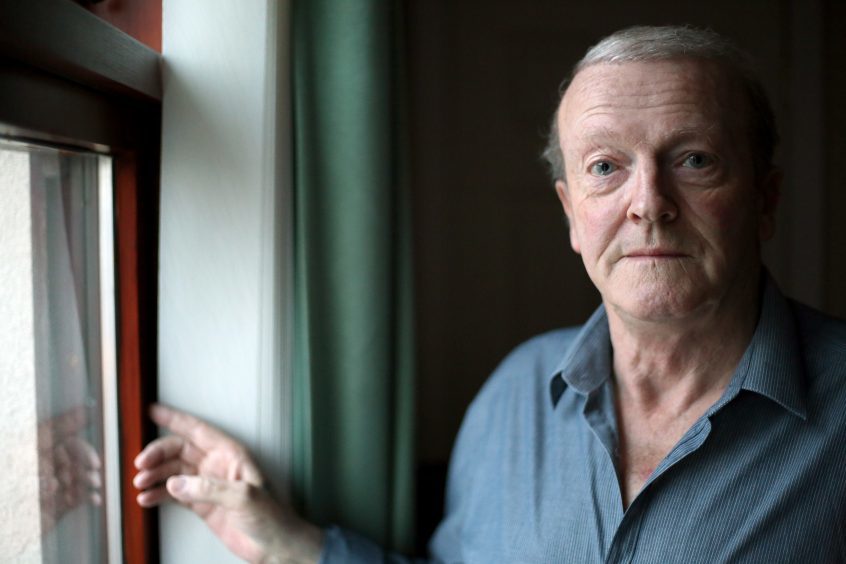Michael Alexander meets Dundee man Dave Finlayson who fears waiting to travel to Switzerland to end his life could mean he might not be well enough to go.
By his own admission, Dave Finlayson enjoys a “fairly active life”.
In winter he swims a couple of miles several times a week at the Olympia Leisure Centre in Dundee and in recent summers he’s swum the Tay four times between Tayport and Broughty Ferry as a member of Ye Amphibious Ancients Bathing Association.
He’s still active enough to walk to and from the city centre and his Caird Avenue home via the gravity defying gradient of the Hilltown and enjoys a regular “rest stop” for a pint (or two) at the Taxi Drivers Club on Stirling Street.
But Dave is facing the ultimate dilemma .
Should he end his life earlier than he wishes to ensure that he is still fit enough to make the journey to assisted suicide clinic Dignitas in Switzerland, or should he risk delaying it until he feels his quality of life has become unbearable only to discover he is no longer well enough to travel?
The 67-year-old retired heating surveyor has motor neurone disease.
He is among the many Scots with a disabling terminal illness who are facing this impossible conundrum and who want Scotland to solve it by becoming the first nation in the UK to legalise assisted suicide.
The ex-Logie School pupil, who served with the Black Watch and reckons he has worked in around 40 jobs over the years, experienced his first symptoms in 2009 when he said there was “something different” about his legs going up and down the stairs in his tenement.
The divorced father-of-two put the twinges down to residual damage from a motorbike accident which shattered his kneecap in 1985.
He was eventually diagnosed with MND in 2015 and still feels well enough to get out and about.
However his worst fear is that he will “end up paralysed with a tube sticking out of his stomach”.
“The doctors say that whatever I’m doing keep doing it because the MND is taking its time,” said Dave, who is registered with Dignitas and has money set aside for the trip.
“There could be nothing for a long time. Then I could get up one morning and I might be a wee bit worse.
“I’m not frightened of dying but my biggest fear is that I’ll become paralysed and be unable to move with my mind still going.
“I’d rather go over there (to Switzerland). You take a drink of barbiturates, fall asleep and you’re gone. We should all have the choice.”
Dave, who says he’ll “do the NHS a favour by saving money on hospices”, also rejects the ethical objections raised by some medical and religious organisations.
He added: “I think that kind of view is going to come from religion isn’t it? What right have they got? I don’t interfere in what they believe, so keep the hell out of my life. Good on them. But leave me alone.
“There are worries folk are going to bump off their grannies to get inheritance etc. But how do several other countries (which allow assisted suicide) manage?”
Campaign group Dignity in Dying says more than half of Scots would consider travelling abroad for an assisted suicide if they were terminally ill – but only one in five could affords the £10,000 cost.
A recent report, The True Cost: How the UK outsources death to Dignitas, included a YouGov poll which showed that more than two thirds would consider breaking the law to assist a terminally ill loved one to have an assisted death abroad.
Although there is no specific crime of assisting a suicide in Scotland, relatives may be prosecuted for culpable homicide just by accompanying their loved one on the plane or driving them to the airport, helping to arrange the trip or contributing financially.
Dignity in Dying is campaigning for Scotland to introduce laws already in place in Canada and parts of the USA that would give terminally ill patients with less than six months to live the right to be prescribed a fatal dose of medication which they can self-administer.
Ally Thomson, Director Scotland of Dignity in Dying said: “By denying terminally ill people the option of an assisted death at home, we are not solving the problem, just outsourcing it to Switzerland – and dying people in Scotland and their families are the ones paying the price.”
Amanda Ward, CEO of Friends at the End recently said the right should also extend to patients with an incurable condition causing “hopeless and unbearable suffering”.
However, Dr Gordon Macdonald, of Care Not Killing, said legalising assisted suicide would see an estimated 1500 Scots a year ending their lives prematurely.
He added: “Many of these people would be in a very vulnerable situation and feel under pressure to end their lives prematurely.
“The current law provides an important deterrent effect and it should not be changed. Rather than changing the law on assisted suicide, we need to ensure that palliative care is properly funded.”













